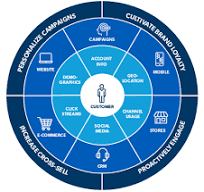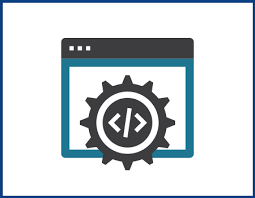The Role of a Developer in Today’s Digital World
In the fast-paced and ever-evolving landscape of technology, developers play a crucial role in shaping the digital world we live in. From creating mobile applications to designing complex algorithms, developers are at the forefront of innovation and progress.
What Does a Developer Do?
A developer is a skilled professional who specializes in writing, testing, and maintaining software applications. They are proficient in various programming languages such as Java, Python, C++, and more. Developers work closely with designers, project managers, and other stakeholders to bring ideas to life through code.
The Skills Required
Developers need a combination of technical expertise and problem-solving skills to excel in their roles. They must be detail-oriented, analytical thinkers who can troubleshoot issues efficiently. Continuous learning is also essential for developers to stay updated with the latest technologies and trends.
The Impact of Developers
Developers have a significant impact on society by creating solutions that improve efficiency, communication, and accessibility. They drive innovation across industries such as healthcare, finance, education, and more. Whether it’s developing e-commerce platforms or building artificial intelligence systems, developers shape the way we interact with technology.
Conclusion
As we navigate the digital age, developers remain key players in driving progress and innovation. Their expertise fuels technological advancements that enhance our daily lives and propel businesses forward. The role of a developer is not just about writing code; it’s about transforming ideas into reality and making a positive impact on the world.
8 Essential Tips for Developers to Enhance Skills and Productivity
- Always document your code for better understanding and maintainability.
- Stay updated with the latest technologies and trends in the industry.
- Practice good coding habits such as following naming conventions and writing clean code.
- Collaborate with other developers to learn from each other and improve your skills.
- Test your code thoroughly to catch bugs early in the development process.
- Don’t be afraid to ask for help or seek guidance when facing challenges in your coding tasks.
- Take breaks and avoid burnout by balancing work with relaxation and hobbies.
- Contribute to open-source projects to gain experience and build a strong portfolio.
Always document your code for better understanding and maintainability.
Ensuring thorough documentation of your code is essential for enhancing comprehension and maintainability. By providing clear explanations and comments within your code, you not only make it easier for yourself to revisit and modify the code in the future but also facilitate collaboration with other developers. Documentation serves as a roadmap that guides both current and future developers through the intricacies of the codebase, fostering efficiency and reducing errors in the development process.
Stay updated with the latest technologies and trends in the industry.
It is essential for developers to stay updated with the latest technologies and trends in the industry to remain competitive and relevant. By continuously learning about new tools, languages, and best practices, developers can enhance their skills, broaden their knowledge base, and adapt to the ever-evolving tech landscape. Keeping abreast of emerging trends also allows developers to explore innovative solutions, improve efficiency, and deliver cutting-edge products that meet the demands of today’s digital world.
Practice good coding habits such as following naming conventions and writing clean code.
Developers can greatly benefit from practicing good coding habits, such as adhering to naming conventions and writing clean code. By following consistent naming conventions, developers can enhance code readability and maintainability, making it easier for themselves and their team members to understand and work with the codebase. Writing clean code not only improves the overall quality of the software but also simplifies debugging and future updates. These habits not only streamline the development process but also contribute to producing efficient and reliable software solutions.
Collaborate with other developers to learn from each other and improve your skills.
Collaborating with other developers is a valuable strategy to enhance your skills and broaden your knowledge in the ever-evolving field of technology. By working together, sharing insights, and learning from each other’s experiences, you can gain new perspectives, tackle challenges more effectively, and stay updated on the latest industry trends. Embracing collaboration not only fosters a sense of community within the developer community but also cultivates a culture of continuous learning and growth that ultimately benefits both individual developers and the industry as a whole.
Test your code thoroughly to catch bugs early in the development process.
Testing your code thoroughly is a crucial step in the development process that can help identify and address bugs early on. By conducting comprehensive testing, developers can ensure the reliability and functionality of their software before it reaches users. This proactive approach not only saves time and resources but also enhances the overall quality of the final product. Investing time in thorough testing ultimately leads to a smoother development process and a more robust end product that meets user expectations.
Don’t be afraid to ask for help or seek guidance when facing challenges in your coding tasks.
When encountering challenges in your coding tasks, it is important not to hesitate in seeking help or guidance. Asking for assistance from colleagues, mentors, or online resources can provide valuable insights and solutions to overcome obstacles more effectively. Embracing a collaborative approach and being open to learning from others not only enhances your problem-solving skills but also fosters a supportive and knowledge-sharing environment within the developer community.
Take breaks and avoid burnout by balancing work with relaxation and hobbies.
To maintain a healthy work-life balance and prevent burnout, developers should prioritize taking breaks and engaging in activities that promote relaxation and personal fulfillment. By incorporating hobbies and leisure time into their routine, developers can recharge their creativity and energy levels, leading to increased productivity and overall well-being. Balancing work responsibilities with moments of rest and enjoyment is essential for sustaining long-term success in the fast-paced world of software development.
Contribute to open-source projects to gain experience and build a strong portfolio.
Contributing to open-source projects is a valuable tip for developers looking to enhance their skills and establish a robust portfolio. By participating in these collaborative initiatives, developers can gain practical experience, expand their knowledge of different technologies, and showcase their abilities to potential employers. Additionally, contributing to open-source projects allows developers to engage with a diverse community of like-minded individuals, fostering learning and networking opportunities that can further advance their careers in the tech industry.




